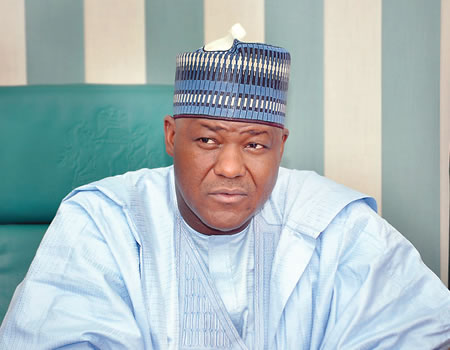THE Speaker, House of Representatives, Yakubu Dogara, has stated that any move to give autonomy to the Nigeria Financial Intelligence Unit (NFIU) from the country’s anti-corruption agency, the Economic and Financial Crimes Commission (EFCC) is dangerous, declaring that the move may harm fight against corruption.
Only last Thursday, the Senate passed the bill seeking to establish the NFIU. The passage came only a week after it was sponsored in the upper chamber of the National Assembly.
While passing the bill, the Senate moved the agency, which is currently a department in the EFCC, to the Central Bank of Nigeria (CBN).
The Senate said the bill was aimed at giving autonomy to the NFIU, which helps in tackling money laundering and monitoring financial flows, to pave the way for Nigeria’s re-admittance into the Egmont Group of Financial Intelligence Units after the country’s suspension.
The group, whose member units share intelligence concerning international financial and illicit flow among themselves, had on Wednesday, July 5, at its 24th plenary in Macao, China, suspended the country for its failure to provide legal framework that will make the NFIU autonomous.
Speaking on the heels of the passage of the bill, Dogara stated that when such an agency was created, it would lead to duplication of agencies, apart from spending more funds, more finance would be committed into the agency.
“I don’t know how independent they want the Nigeria Financial Intelligence Unit, (NFIU), except if we are going to create an agency that will have enough independence to superintend over the affairs of the financial intelligence unit.
“The problem you run into is that when you duplicate these agencies, you are going to spend more funds, there will be more finances committed into this agency and that takes us to the issue of looking elsewhere for guidance,” the Speaker stated in the September edition of EFCCALERT!, a publication of the anti-graft agency.
According to him, there was the need for the NFIU to be under some kind of control of the EFCC if the commission would be effective, noting that this was in view of the fact that some core evidence EFCC might need to prosecute the war against corruption, might be with the NFIU.
He added that should the FIU be granted autonomy, it might lead to inter-agency rivalry, which in turn would harm the fight against corruption.
“I sincerely believe that for the EFCC to be effective, [it needs to] exercise some kind of control [over] that unit [NFIU] in the sense that in most cases, the hard core evidence that [is] needed to secure convictions may rest on the activities of that unit.
“Now if you have taken the unit out of EFCC and conferred some kind of independence on the agency running the unit, you will have inter-agency rivalry and that, sincerely speaking, may harm our fight against corruption, more than the good granting them autonomy may bring to the system,” he said.
“So, if we are talking about inability to secure convictions, I believe the journey must begin where you can control all the avenues that give you that quality and sound evidence that you need to tender before the judge to secure convictions.
“If we start granting autonomy to some of the units, and then instead of cooperating, we are having inter-agency rivalry, you will further frustrate the battle against corruption,” he stated.
WATCH TOP VIDEOS FROM NIGERIAN TRIBUNE TV
- Let’s Talk About SELF-AWARENESS
- Is Your Confidence Mistaken for Pride? Let’s talk about it
- Is Etiquette About Perfection…Or Just Not Being Rude?
- Top Psychologist Reveal 3 Signs You’re Struggling With Imposter Syndrome
- Do You Pick Up Work-Related Calls at Midnight or Never? Let’s Talk About Boundaries







